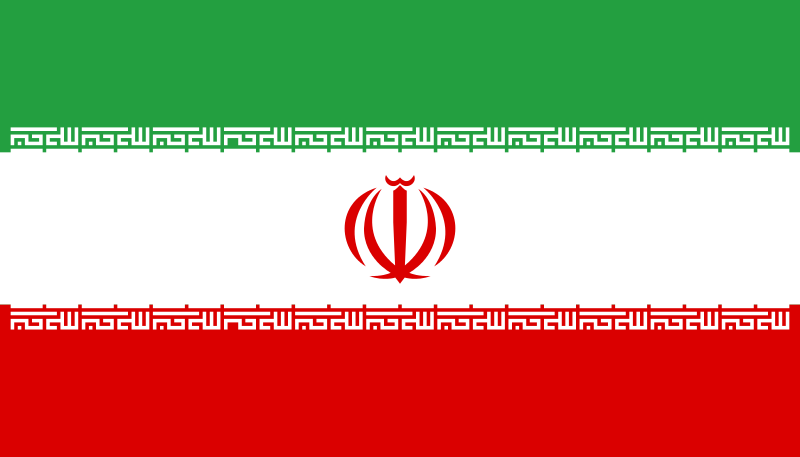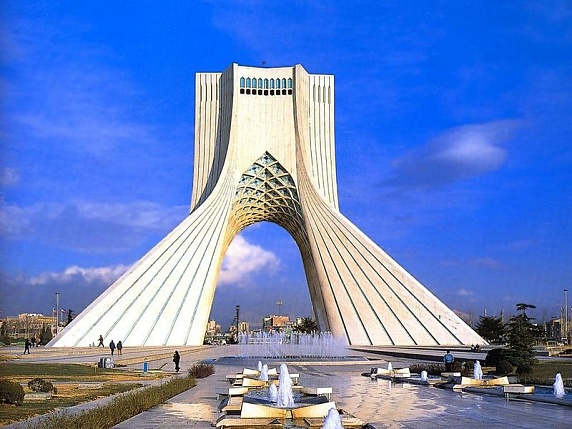 the Islamic Republic of Iran
the Islamic Republic of Iran
Foreign Minister Sergey Lavrov’s statement and answers to media questions at a joint news conference following talks with Foreign Minister of the Republic of Belarus Sergey Aleinik, Minsk, June 24, 2024
Mr Aleinik, media members,
I would like to once again express my gratitude to our Belarusian friends for your warm hospitality and excellent arrangements during my official trip to the Republic of Belarus.
Our talks were held in a trust-based and friendly atmosphere, were quite substantive and covered an extensive number of issues.
We focused on important international matters. We compared notes on numerous aspects of bilateral cooperation, including interministerial interaction and foreign policy alignment.
Following the tradition, we reviewed the implementation of the 2024-2026 Programme for Concerted Foreign Policy Actions and the Plan of Interministerial Consultations for this year, both of which had been approved by the presidents of Russia and Belarus. We stated that 13 rounds of consultations at the level of deputy ministers and heads of departments have been held since earlier this year.
Our absolute priorities include foreign policy support for the Union integration and strengthening international positions of the Union State, the 25th anniversary of which we will celebrate on December 8, 2024.
We have agreed to ramp up the level of interaction at the UN and the OSCE. We will support each other’s initiatives on key Eurasian multilateral platforms, including the EAEU, the CSTO, and the CIS which Russia is chairing this year. We will provide every bit of assistance to our Belarusian allies in order to get them fully onboard at the SCO and various BRICS mechanisms as soon as possible.
We aim to enhance the practice of issuing statements on behalf of the Union State for further dissemination at various multilateral platforms.
We praised the Russian and Belarusian foreign ministries’ efforts to draft the first joint report on the human rights situation in individual countries. This report will be presented on the margins of a UN Human Rights Council session in Geneva on July 3 and in the OSCE on July 5.
We exchanged views on the prospects for developing relations with friendly countries from the Global South and the Global East, the Global Majority countries. We reiterated our commitment to jointly uphold traditional values and the historical truth, and to prevent the rewriting of history and the glorification of Nazism.
We expressed our commitment to jointly oppose unilateral sanctions and the information and propaganda pressure. We noted the counterproductive consequences of politicising international cultural, humanitarian, scientific and sports relations.
We focused on creating a common Union State space in defence and security. We noted that the joint regional grouping of troops and forces deployed in the Republic, as well as advanced Russian defence complexes and tactical nuclear weapons which reliably shield our common western borders in accordance with the decisions of the presidents of the two countries, are quite helpful in achieving this goal.
We have analysed the work to draft the Union State’s security concept and a bilateral interstate agreement on security guarantees. We have spoken in favour of intensifying military-technical cooperation.
We condemn the Western countries’ actions that have led to the Ukraine crisis and the final collapse of the security system in Europe, based on the Euro-Atlantic principles. In this context, we have paid special attention to the prospects for creating a new architecture of equal and indivisible security in Eurasia, inviting all countries in our common continent to cooperate in this process. We have signed the Joint Appeal to the heads of friendly associations, calling on them to support the Belarusian initiative to draft a Eurasian Charter of Multipolarity and Diversity in the 21st Century.
President of Russia Vladimir Putin spoke about the importance of this work at his meeting with the Russian Foreign Ministry’s senior officials on June 14. The Russian leader stressed that this Charter could not only formulate the framework principles of Eurasian architecture based on the fundamental principles of international law, but also, more broadly, trace the strategic outlines of multipolarity and multilateralism, reflecting new geopolitical realities. We are planning to have an in-depth discussion of this document with our opinion allies, primarily those from the CSTO, CIS, SCO, ASEAN, and the Conference on Interaction and Confidence-Building Measures in Asia.
We have decided to continue the work on aligning the rights and capabilities of our citizens, including in the electoral and other important spheres.
We have agreed to help each other even further in expanding mutual consular presence. For our part, we will continue extending all the necessary assistance to our Belarusian friends. Last year, Belarus opened its general consulates in St Petersburg and Yekaterinburg and the Belarusian Embassy’s new office in Krasnodar. This year, we will finalise the organisation of Belarusian consulates general in Rostov-on-Don, Vladivostok, Kaliningrad and Nizhny Novgorod, as well as the Embassy’s office in Voronezh. We have agreed to speed up the solution of problems involved in ensuring full-scale functioning of the recently opened Consulate General of the Russian Federation in Grodno.
We have drafted a schedule for further contacts, including at the second Minsk Conference on Eurasian Security and the annual joint meeting of the collegiums of the foreign ministries of Russia and Belarus, which is to be held on a rotational basis in Minsk in the fourth quarter of 2024.
Mr Aleinik and I share the opinion that our talks were, as usual, successful and productive. Following the talks, we signed the Joint Statement on the Main Foreign Policy Tasks of the Union Integration of Russia and Belarus. The document emphasises that the two states have reached the highest level of strategic interaction and mutual trust and are ready to promote further their close coordination.
But this is not the end of my sojourn in Minsk. Its programme includes some additional events and meetings with the Republic’s leaders tomorrow. I will also address the students and teachers at the Academy of Administration under the President of the Republic of Belarus. I hope that the results of today’s and tomorrow’s talks will make it possible for us to state that we are helping to implement the decisions adopted by our leaders.
Question: A number of White House and Pentagon officials say that they have authorised
How realistic is
Sergey Lavrov: Practically all of the West’s declarations and doings since the start of the special military operation constitute an all-round ultimatum to the Russian Federation, including the prospects for a political and diplomatic settlement disrupted at the instructions from the Anglo-Saxons in April 2022 and the “creeping” expansion of the range of weapons that the West allows itself to supply to the Nazi Kiev regime. We see these developments as a situation where we have been presented with a Western ultimatum. President Vladimir Putin’s decisions on our further steps are based on this premise.
Our good will is well known. We have it galore. We have repeatedly made proposals on finding a mutually acceptable solution to the crisis, which the West has created in
Question: Quite likely. Did you hear a popular
Sergey Lavrov: Are we having a dialogue with you?
Question: He says this peace plan has not appeared from nowhere but has emerged from talks.
Sergey Lavrov: I will answer your questions right away.
The West is generating most different ultimatums, one of which is the “peace plan,” as you call it. President Putin’s June 14 initiative proceeds from a sober-minded and constructive analysis of the existing realities. We have not conducted any clandestine talks with anyone. The West is refusing to organise fair talks. I am not mentioning the fact that certain Zelensky has prohibited the entire Ukrainian leadership from holding talks with the
As for the plans to hold another conference after the Bürgenstock get-together, I can only say that the formulas we are hearing in this regard (and we hear what is being said in public, since no one has approached us with any initiatives) are “spluttered” by the West and follow the logic of the same policy of ultimatums pursued against the Russian Federation. But we have no use for ultimatums.
Question: How do you estimate chances of aggression against
Sergey Lavrov: I don’t even want to speculate about the likelihood of these grim, gloomy scenarios. I can only confirm that the West must hear about everything we are doing together with our Belarusian allies based on the decision approved by President Putin and President Lukashenko.
We hope that sober-minded people with an instinct of self-preservation, who are still surviving in the West (if in small numbers), will draw the correct conclusions and refrain from crossing this highly dangerous line.
Question: Yesterday,
Sergey Lavrov: We are doing whatever we can to prevent increasingly more countries from being involved in the
You have mentioned
As for the joint Russian-Belarusian initiative, it applies to the entire Eurasian continent. A number of countries we are talking about are in the Eurasian continent.
Our proposal is addressed to all those who are willing to consider the prospect for creating a new security system on an equitable basis with regard for the interests of all countries on the continent and based on the balance of these interests, excluding any outside interference. It is a voice from abroad, from the overseas that played the decisive role in that the Euro-Atlantic security system has fully discredited itself and fallen through.
Question: The Polish authorities, specifically the Polish foreign ministry, recently made high-sounding statements that they were contemplating a full closure of the Polish-Belarusian border after a study of the obvious economic consequences. How consistent or adequate is the neighbouring country, given that the Polish authorities were saying just the opposite only a short while ago? It will be recalled that they were planning to open the closed checkpoints, because the Polish border territories were sustaining considerable financial losses that
Sergey Lavrov: You have answered your own question. We see no consistency in the actions and statements of many Western leaders. This refers to the Polish leaders as well.
I think that their swinging from one extreme to the other is explained by the fact that they are guided by their self-seeking political considerations ahead of an upcoming election or immediately after it, rather than by the fundamental interests of their people (Polish people in this case). We are used to this.
Russian foreign policy planning carried out with the participation of our Belarusian allies takes into account the inconsistency and unreliability of the European neighbours.









